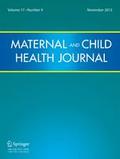Life Course Perspective: Additional Resources
The Life Course Perspective is defined by MCHB as the multidisciplinary approach to understanding the mental, physical, and social health of individuals, which incorporates both life span and life stage concepts that determine an individual's health trajectory
The development of this list of resources was supported by the Association of University Centers on Disabilities (AUCD) through a Cooperative Agreement with Health Resources and Services Administration's Maternal and Child Health Bureau (MCHB), Grant #UA5MC11068. The content was developed by an interdisciplinary working group comprised of representatives of MCHB funded leadership training programs in the areas of Neurodevelopmental and Related Disabilities (including trainees), Pediatric Pulmonary Care, Nutrition, Public Health, Adolescent Health, AUCD and representatives from MCHB.
Training Resources
9/23/2013
The Development and Implementation of an Interdisciplinary On-line Academic Course Using the Life Course Perspective
The University of Wisconsin, Madison Pediatric Pulmonary Center (UW PPC) provides interdisciplinary leadership training for graduate students and postgraduate professionals. The training includes a three-credit on-line course entitled Interdisciplinary Care of Children with Special Health Care Needs. This paper describes the course, the content and organization of which was guided by the life course perspective (LCP). The UW PPC team used the LCP to guide course organization, content development, and evaluation approaches. UW PPC trainees took responsibility for content areas, performed literature reviews and reviews of resources, and suggested student activities. Course content was focused on the child with special health care needs (CSHCN) embedded in contextual environments of family, community, culture, and larger social and public policy arenas.
8/27/2013
Life Course: Nurturing Early Growth and Development
University of Minnesota, School of Public Health
This issue of Healthy Generations begins with an overview of the life course perspective, serving as the foundation for subsequent articles and materials that explore the framework in greater detail. The contributing authors come from a variety of professional backgrounds and disciplines reflecting its overarching philosophy. The publication includes an exploration of the science of brain development and the impact of early experiences by Dr. Megan Gunnar and follows with a discussion of adverse childhood experiences research. Dr. Glenace Edwall provides an overview of the importance of evidence-based practices in early childhood mental health. The issue concludes with a listing of web resources to provide the reader an opportunity to delve into the life course framework in greater depth
4/30/2013
Incorporating Life Course Theory and Social Determinants of Health in the LEND Curriculum (Table from MCHJ Article)
This table was taken from an article submitted to the MCHJ Special Life Course Issue. The table was developed by Karen Edwards, Barbara Levitz and Patty Towle at the Westchester Institute for Human Development in New York
9/10/2012
Maternal Nutrition and Infant Mortality in the Context of Relationality
By: Dr. Michael Lu and Jessica Lu
To better understand the issues and to inform its deliberation in formulating recommendations for policy, research, and practice, the Commission asked experts in various fields related to maternal and child health and infant mortality to prepare background papers on specific issues. This background paper explores the relationship between maternal nutrition and infant mortality, with an emphasis on the context of relationality. It provides an analysis of the relationship between maternal nutrition and leading causes of infant mortality, as well as maternal, infant, and child health; an overview of the nutritional status and behaviors of pregnant women in the U.S.; and a comprehensive review of the effectiveness of nutritional supplementation programs in pregnancy.

2/24/2012
380.604.81 Life Course Perspectives on Health
This course teaches students to frame public health issues using a life course perspective. It introduces and examines basic principles of human development across the life span, from the prenatal period through senescence, and the idea that health outcomes reflect developmental processes.

12/1/2011
CityMatCH Life Course Game Tool
The 'Life Course Game' is an interactive tool for demonstrating how social and biological factors impact health and development throughout life. The game can increase awareness and facilitate discussion about the root causes that affect maternal, child, adolescent and family health.

12/1/2011
Disability Across the Life Course
New Book by Tamar Heller and Sarah Parker Harris, Institute on Disability and Human Development, University of Illinois at Chicago
In addition to providing an overall theoretical and historical background, this book addresses disability across the life course through delineation of various age phases from prenatal periods to death. Cross-cutting issues highlighted are: family; health; policy, legislation, and service; and self-determination and participation.
Articles and Documents

2/27/2020
Family is at the Heart of Va-LEND
Submitted by Jennifer Drummond
For over 20 years Family Mentorship Experience (FME) has been an integral part of Va-LEND. The goal of FME is for the mentoring families to teach the students about their life as a parent of a child with special healthcare needs. Trainees schedule at least five face-to- face visits during the academic year with their family and maintain an activity log. Mentoring families often participate over a period of years, and can choose to be part of Va-LEND for many reasons.
1/10/2019
Aetna Medicaid Announces New Innovative Approach for Members With Intellectual and Developmental Disabilities (MO UCEDD)
Aetna Medicaid, a CVS health business (NYSE: CVS), has announced an outcomes-based model for members with intellectual and development disabilities (IDD). The new model, which will launch on January 1, 2019 in Kansas, will be partially based on the Charting the LifeCourse framework developed by the University of Missouri-Kansas City (UMKC) Institute for Human Development, Missouri's University Center for Excellence in Developmental Disabilities Education, Research and Services.
2/20/2014
Improving Maternal and Child Health Across the Life Course: Where Do We Go from Here?
Michael C. Lu, MCH Journal, February 2014
In this editorial for the MCH Journal, Dr. Lu offers three further suggestions for how to advance life course research, practice, and policy in MCH. In research, we need to move beyond discovery to intervention research. In practice, we need to move from isolated to collective impact. In policy, we need to move beyond paying for remediation to investing in capacity formation.

10/29/2013
Two recent publications from the MCH Life Course Research Network (LCRN)
A growing body of evidence suggests that health problems and disparities throughout the life span are rooted in suboptimal childhood health and experiences. Improving lifelong health outcomes and reducing or eliminating health disparities is likely to benefit from the application of emerging life course (LC) research to MCH policy and practice. Enhancing LC research will be advanced by the development of a transdisciplinary, transformative and translational MCH LCRN that engages a diverse set of MCH stakeholders including researchers, policy and program planners, and family and community representatives, and strategically focuses production, transmission and translation of LC research.
8/5/2012
Supplement Looks at How Experiences and Exposures Across the Life Span Shape Health, Development, and Learning in Adolescence
The August 2012 supplement to the Journal of Adolescent Health examines the impact of experience in shaping the brain and behavior from the prenatal period through adolescence. The content is based on a conference held in April 2011 at the Johns Hopkins Bloomberg School of Public Health to consider the role of stress, adversity, and experience (broadly defined) during the prenatal, childhood, and adolescent periods. Together, the articles in the supplement illustrate the diversity of research methods being applied in this area, which span genomics, developmental psychobiology, neuro-imaging, and intervention research. The article abstracts are available at http://jahonline.org/supplements.
7/1/2012
Childhood Health: Trends and Consequences over the Life Course
This article first documents evidence on the changing prevalence of childhood physical and mental health problems, focusing on the development of childhood health conditions in the United States. Authors Liam Delaney and James Smith present evidence on the changing prevalence of childhood chronic conditions over time using recalled data as well as contemporaneous accounts of these childhood health problems. The raw data from both sources show sharp increases in the prevalence of most childhood physical health problems (such as asthma, allergies, respiratory problems, and migraines) over time. However, inferring trends is difficult because such data are also consistent with improved detection of childhood disease, and many of the causes of childhood disease have not worsened over time. Conclusions about rapidly rising rates of childhood physical health problems over time are premature at best, especially concerning the magnitude of trends. Documenting real changes in the prevalence of specific diseases is a high-priority research topic. In contrast, the evidence is much stronger that childhood mental health problems are becoming worse.
7/1/2012
Children with Disabilities: Introducing the Issue
This issue of The Future of Children explores childhood disability?its prevalence, nature, treatment, and consequences. With unprecedented numbers of U.S. children now being identified as having special medical and educational needs and with the nation?s resources for addressing those needs increasingly constrained, the topic is timely.
7/1/2012
The Changing Landscape of Disability in Childhood
Americans? perceptions of childhood disability have changed dramatically over the past century, as have their ideas about health and illness, medical developments, threats to children?s health and development, and expectations for child functioning. Neal Halfon, Amy Houtrow, Kandyce Larson, and Paul Newacheck examine how these changes have influenced the risk of poor health and disability and how recent policies to address the needs of children with disabilities have evolved.
12/1/2011
A New Way to Talk About The Social Determinants of Health
Source: Robert Wood Johnson Foundation
Over the course of four years, the RWJF Vulnerable Populations Portfolio undertook an iterative research and message development process that benefited from both traditional and nontraditional research techniques. This work has helped to communicate more effectively, and to share information with others. In A New Way to Talk About the Social Determinants of Health, the Portfolio shares a way to create more compelling, effective and persuasive messages that resonate across the political spectrum.
12/1/2011
Confronting Social Disparities in Child Health: A Critical Appraisal of Life-Course Science and Research
The utility of the life-course framework to address disparities in child health is based on its ability to integrate the science of child development with the requirements of effective and just public policy. In this article, Dr. Wise argues that the life-course framework is best assessed in a historical context and through 4 essential observations.
12/1/2011
Life Course Epidemiology (A Glossary)
By: D Kuh, Y Ben-Shlomo, J Lynch, J Hallqvist, C Power
The aim of this glossary is to encourage a dialogue that will advance the life course perspective.
11/1/0213
Life Course Health Development: Past, Present and Future
Source: MCH Life Course Research Network
This paper attempts to chart the evolution of the LCHD framework, and illustrate its potential to transform how the MCH system addresses social, psychological, biological, and genetic influences on health, eliminates health disparities, reduces chronic illness, and contains healthcare costs. The LCHD approach can serve to highlight the foundational importance of MCH, moving it from the margins of national debate to the forefront of healthcare reform efforts. The paper concludes with suggestions for innovations that could accelerate the translation of health development principles into MCH practice.
Websites
-
Alameda County Building Blocks Collaborative
The Building Blocks Collaborative (BBC) is a health equity initiative of Alameda County Public Health Department, using the Life Course Perspective as its theoretical framework.
-
Contra Costa Health Services: Building Economic Security Today (BEST)
Building Economic Security Today (BEST) is an asset development pilot project that utilizes innovative strategies to reduce inequities in health outcomes for low-income Contra Costa families by improving their financial security and stability, for this and future generations.
-
Health-Wealth Connection Collaborative of the East Bay (HWCC)
The (HWCC) is a cross-sector coalition of economic justice and public health organizations in the Bay Area, primarily Alameda and Contra Costa Counties.
-
AMCHP State Life Course Resource Center
This website contains links to presentations and educational tools designed to support Maternal and Child Health Programs.
-
The Life Course Approach- MCHB Resources
A number of key resources are identified on this site that MCH Training Programs will partner with MCHB in exploring the implications of life course perspectives for our collective efforts to improve the health and well-being of all women, children, youth and families now, and over future generations
-
2011 Joint Interdisciplinary Training Meeting
This meeting, held in February 2011, was organized for MCHB - funded LEND, LEAH, DBP, PPC, and SPH program directors and staff. The topic of this meeting was Life Course.
-
MCH Navigator: A Training Portal for MCH Professionals
The MCH Navigator is a learning portal for maternal and child health professionals, students, and others working to improve the health and well being of women, children, and families.







